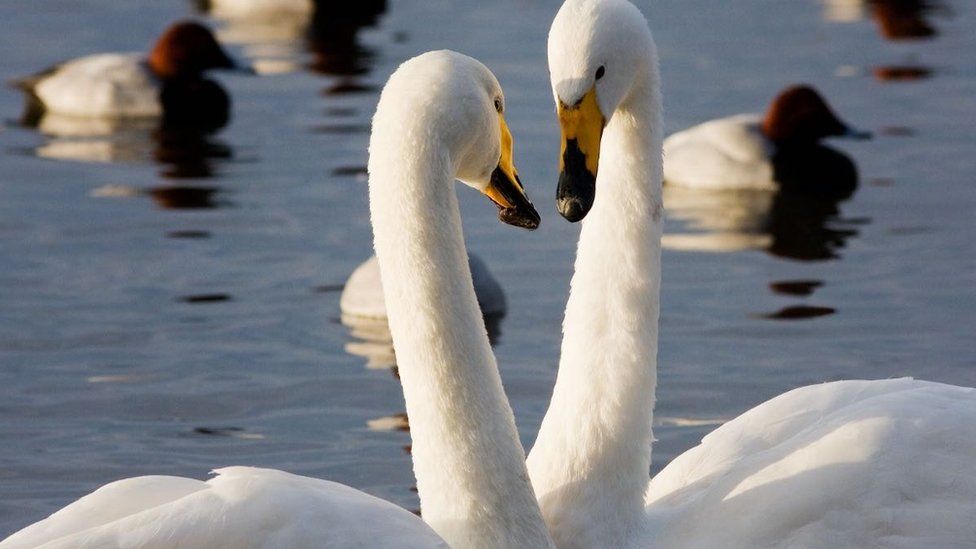Numbers of whooper swans are predicted to double in the UK by 2030, thanks to efforts to protect the wetlands where they spend the winter.
The wild bird, known for its trumpet-like call, flies in from Iceland to overwinter across the country.
Scientists say the swan is benefitting from special protection in nature reserves.
And this offers hope that setting aside 30% of the planet for nature can help reverse decades of biodiversity loss.
“The big message is that nature reserves can operate as very good protectors of wildlife,” Prof Stuart Bearhop of the University of Exeter told BBC News.
“If we could get 30% of the world protected – and protected in the right way – we are going absolutely in the right direction.”
The researchers – led by the universities of Exeter and Helsinki – analysed 30 years of data on more than 10,000 wild swans.
They found survival rates were significantly higher at nature reserves and population growth was so strong that it boosted numbers elsewhere.
The study found that nature reserves in low-lying coastal areas were key to the survival of whooper swans.
Whopper swans can be seen between October and March in Scotland, Northern Ireland, northern England and parts of East Anglia.
Three nature reserves at Welney in Norfolk, Martin Mere in Lancashire and Caerlaverock in southwest Scotland give special protection to wild swans.

“Our findings provide strong evidence that nature reserves are hugely beneficial for whooper swans, and could dramatically increase their numbers in the UK,” said study researcher, Dr Andrea Soriano-Redondo.
Providing the highest possible protection for the swan was key – such as fencing out foxes and other predators, avoiding farming methods that disturb the land and sighting the reserves away from hazards such as power lines.
Humanity relies on healthy global ecosystems for clean air and water, as well as food. But species of plants and animals are disappearing at a rate unprecedented in human history.
In December nearly 200 countries signed up to a plan to protect 30% of lands and seas for nature by 2030 in an attempt to halt and reverse biodiversity decline.
Highly-protected areas that allow nature to recover are at the heart of this global effort.
Source: British Broadcasting Corporation


